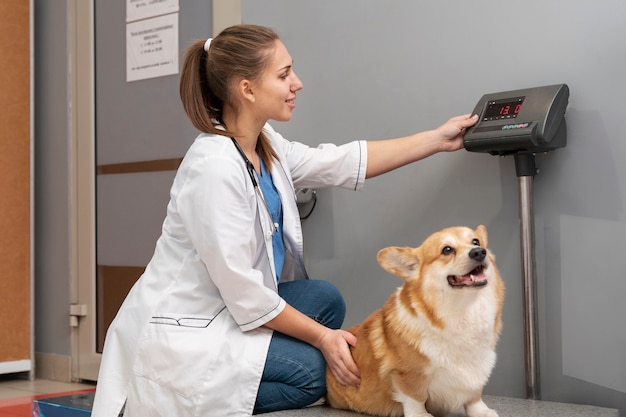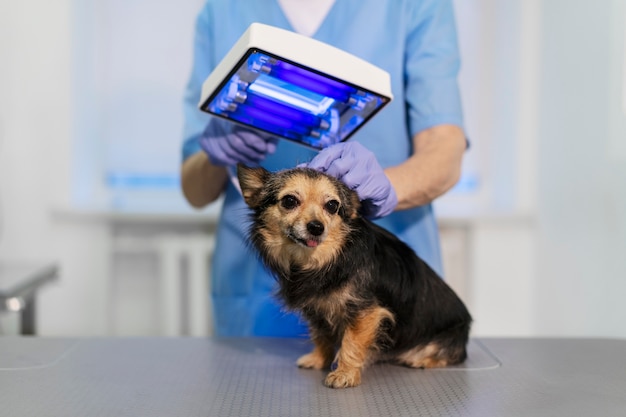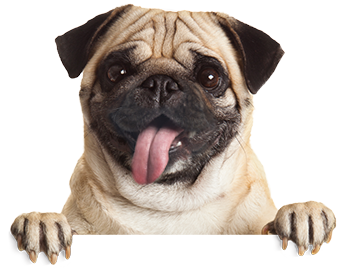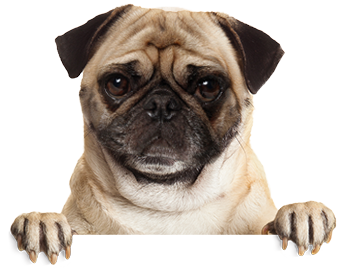The Benefits of Thyroid Ultrasound for Cats and Dogs
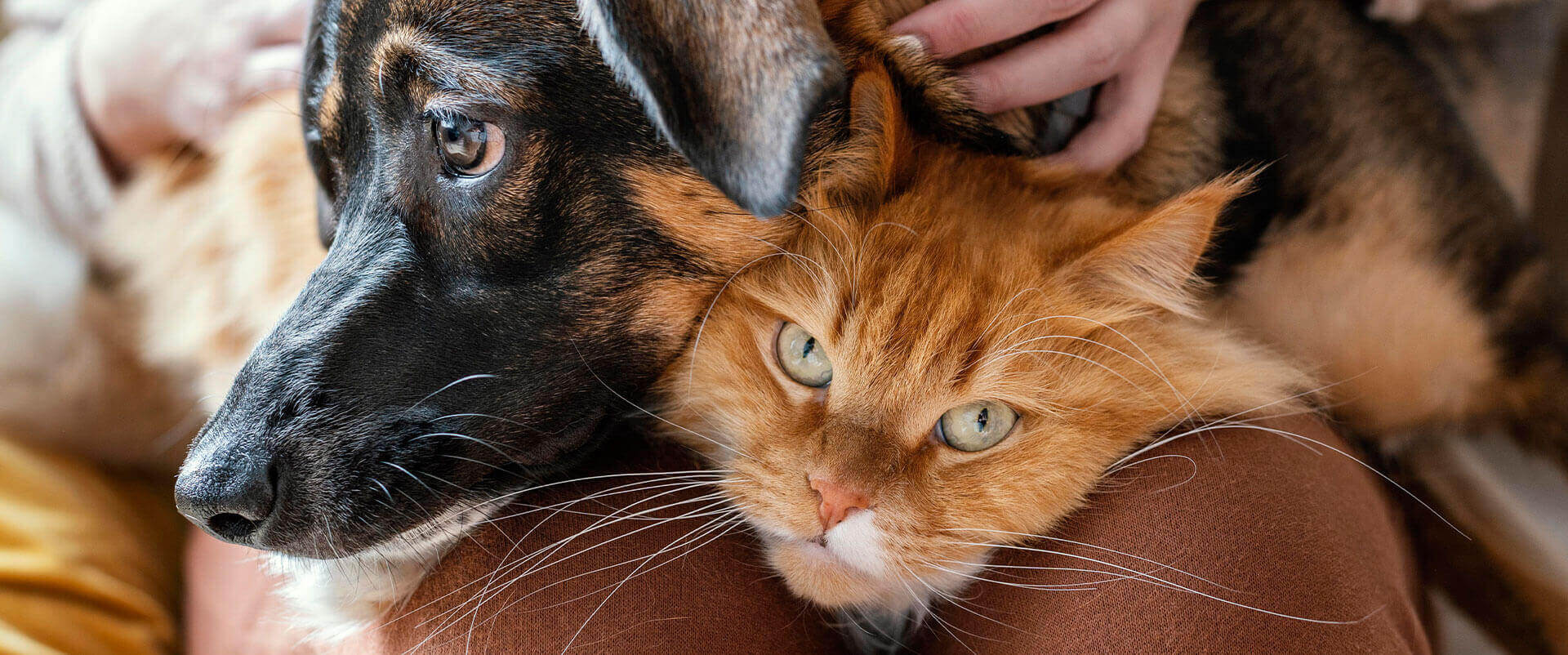
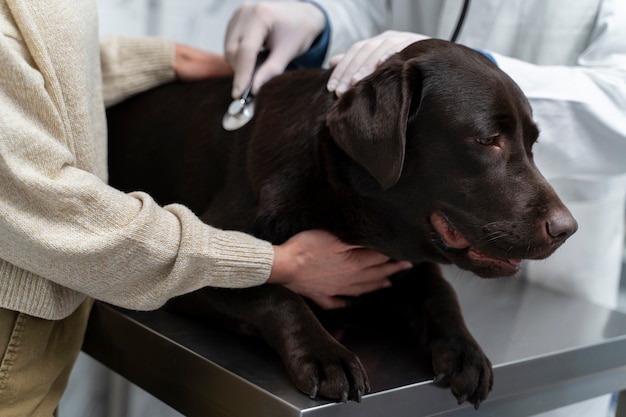
The Benefits of Thyroid Ultrasound for Cats and Dogs
As a caring pet owner, you want to do everything possible to protect your dog or cat’s health—especially when subtle changes in behavior or energy levels leave you concerned. If your veterinarian has mentioned a thyroid problem, you might be wondering about the safest, most accurate way to get answers for your pet. At 4 Paws Imaging FL, located at 195 Concord Dr, Casselberry, FL 32707, our veterinary imaging specialists provide advanced diagnostic services like thyroid ultrasound for pets. This non-invasive imaging technique offers a precise look at thyroid health for both cats and dogs, supporting early detection and more targeted treatment.
In this blog, we will explain what a thyroid ultrasound is, explore how it compares to other thyroid testing for cats and dogs, and answer common questions about the benefits of advanced imaging. Whether you live in Casselberry or one of the surrounding communities, learning about veterinary specialty diagnostics empowers you to make informed decisions for your pet’s wellbeing. If you are searching for a specialist vet near me with expertise in thyroid imaging, you are in the right place. For a more detailed overview of our thyroid ultrasound service, please visit our Thyroid Ultrasound service for pets page.
Recognizing the Signs: When Might Your Pet Need Thyroid Testing?
Understanding when to consider thyroid testing for your cat or dog is the first step toward getting them the care they need. Thyroid disease can develop gradually, and early signs may be easy to miss. For cats, hyperthyroidism is common, especially in older felines, and signs to watch for are increased appetite with weight loss, restlessness, increased thirst and urination, vomiting, diarrhea, and a noticeable change in coat quality. In dogs, hypothyroidism is more typical, and symptoms include lethargy, weight gain despite a normal diet, hair loss (often around the tail and flanks), dry skin, and a tendency to feel the cold more than usual.
If you observe any of these changes in your pet, especially if they persist or worsen, it is essential to discuss them with your veterinarian. Your general practitioner may refer you to a specialty imaging center like ours for advanced thyroid testing. Recognizing the subtle shifts in your pet’s behavior or appearance can make all the difference in catching thyroid disease early. Residents searching for thyroid ultrasound for pets in Casselberry and surrounding communities can rest assured that help is close to home.
What Causes Thyroid Disease in Cats and Dogs?
The thyroid gland plays a vital role in regulating your pet’s metabolism, energy, and many bodily functions. In cats, the most common thyroid disorder is hyperthyroidism, which often results from benign growths or adenomas on the thyroid gland that lead to excessive hormone production. Environmental factors, exposure to certain chemicals, and genetic predispositions may contribute, but in most cases, the exact cause remains unclear. As cats age, the risk increases, and regular wellness checks become even more important.
In contrast, dogs are more prone to hypothyroidism, which means their thyroid gland is underactive. This often results from autoimmune disorders that damage the thyroid tissue or, less commonly, from tumors or congenital conditions. Certain breeds, such as Golden Retrievers and Doberman Pinschers, are at higher risk. Importantly, both conditions can cause vague or non-specific symptoms, which is why thorough veterinary evaluation is so important. When your veterinarian suspects a thyroid issue, they may recommend specialty diagnostic imaging, such as a thyroid ultrasound, to provide precise information about the gland’s structure and function.
Why Choose Thyroid Ultrasound for Pets?
Thyroid ultrasound for pets offers a safe, non-invasive way to obtain detailed images of your pet’s thyroid gland. Unlike blood tests alone, which measure hormone levels, ultrasound allows veterinary specialists to assess the size, shape, and internal structure of the thyroid tissue. This is especially valuable for distinguishing between benign enlargement and potentially cancerous growths, or for guiding biopsies when needed.
During the procedure, your cat or dog will lie comfortably while a trained veterinary imaging professional gently moves a small probe over the neck area. Most pets tolerate the procedure well, and sedation is rarely required. The images produced can reveal nodules, cysts, abnormal vascular patterns, or other changes that might not be detected with bloodwork alone.
For pet owners in need of thyroid testing cats dogs in Casselberry, thyroid ultrasound is an advanced diagnostic tool that can lead to faster, more accurate diagnoses. This means targeted treatment can begin sooner, improving your pet’s prognosis and quality of life. Our Thyroid Ultrasound service for pets page explains more about what to expect from your visit.
How Does Thyroid Ultrasound Compare to Other Tests?
Traditional thyroid testing in pets usually begins with bloodwork to assess hormone levels such as T4 and TSH. While these tests are invaluable for detecting abnormal thyroid function, they cannot reveal the underlying cause of the problem. For example, a dog with low thyroid hormone may have hypothyroidism due to autoimmune destruction of the gland, or they may have a mass compressing the tissue. In cats, an enlarged thyroid may produce excess hormone, but the underlying structure could vary greatly.
Thyroid ultrasound for pets provides a visual assessment that complements blood test results. This allows your veterinary team to determine whether a mass, cyst, or nodule is present, and if it appears benign or requires further investigation. In some cases, ultrasound-guided aspiration or biopsy may be recommended to obtain a tissue sample for laboratory analysis, especially if there is concern about malignancy.
What Happens After a Thyroid Ultrasound?
After your pet’s thyroid ultrasound, the veterinary imaging specialist will review the images and share detailed findings with your referring veterinarian. This collaborative approach ensures your dog or cat receives the most appropriate care based on their unique situation. If a benign enlargement is identified, your veterinarian may recommend ongoing monitoring and medication. If a suspicious mass is present, further diagnostics or surgery may be discussed.
Specialist vet near me searches often reflect a desire for expertise and advanced technology, which is exactly what imaging centers like 4 Paws Imaging FL offer. By working closely with your primary care veterinarian, we help ensure your pet benefits from a team approach to their health.
How Can Pet Owners Support Thyroid Health at Home?
While many thyroid conditions are not preventable, you can take proactive steps to support your pet’s overall health. Regular veterinary check-ups are crucial, especially for older pets or breeds at higher risk. Paying attention to subtle changes—such as shifts in appetite, energy, weight, or coat quality—can prompt timely evaluation. Feeding a balanced diet, preventing exposure to known toxins, and maintaining a healthy weight all contribute to optimal thyroid function.
If your pet has been diagnosed with a thyroid disorder, following your veterinarian’s recommendations for medication, monitoring, and rechecks is vital. Specialty care like thyroid ultrasound for pets in Casselberry provides your veterinarian with detailed information to guide ongoing management decisions. Staying informed and proactive is the best way to protect your pet’s long-term wellbeing.
When Should You Seek Specialty Veterinary Care?
It can be difficult to know when advanced diagnostics are needed. If your primary care veterinarian suspects a thyroid problem and routine tests are inconclusive, or if a mass is felt in your pet’s neck, seeking referral to a specialist is recommended. A sudden or dramatic change in your pet’s health—such as rapid weight loss, persistent vomiting, unexplained lethargy, or difficulty breathing—should prompt immediate veterinary attention. Diagnostic imaging is especially valuable when traditional tests do not provide a clear explanation for your pet’s symptoms.
For pet owners searching for thyroid ultrasound for pets near me or specialist vet near me, 4 Paws Imaging FL offers the advanced imaging resources your pet needs. Our veterinary professionals are committed to working hand-in-hand with your referring veterinarian to deliver precise answers and a clear path forward.
The Value of Advanced Imaging: Peace of Mind for Pet Owners
Choosing advanced thyroid testing cats dogs in Casselberry gives you and your veterinarian access to the latest diagnostic tools. Thyroid ultrasound for pets is a safe, comfortable, and highly informative way to understand your pet’s health and plan the best course of action. Whether your pet is experiencing subtle changes or requires targeted monitoring, specialized imaging can make all the difference.
If you are searching for a specialist vet near me who offers thyroid ultrasound for pets, we invite you to reach out to our experienced veterinary imaging team. We are dedicated to providing compassionate, collaborative care for pets throughout Casselberry and surrounding communities.
Ready to take the next step in your pet’s health journey? Visit our Thyroid Ultrasound service for pets page, or contact our team of veterinary professionals at (321) 343-4758. We welcome referrals and are always happy to answer your questions about advanced diagnostic imaging for your cat or dog. When you need a trusted specialist vet near me for thyroid ultrasound for pets in Casselberry, 4 Paws Imaging FL is here to help every step of the way.
This blog is intended for informational purposes only and should not be used as a substitute for professional veterinary advice. Always consult with your veterinarian or a veterinary specialist for diagnosis and treatment tailored to your pet’s specific needs.


